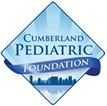Now in its seventh year, the Meharry-Vanderbilt Community Engaged Research Core Mini Grant program has provided $139,072 in funding to 35 academic-community partnerships. Based on feedback from past awardees and community advisors, CERC’s 2015 Mini Grant award cycle was modified to better support the creation of sustainable academic-community research partnerships and now offers two tracks for applicants – a $2,000 partnership development grant and a $10,000 award that will enable community driven translational research. The Mini Grant Review Committee, consisting of equal numbers of academicians and community members, awarded four Mini Grants for 2015:
2015 Partnership Development Grant Recipient

Title: Surgical Outcomes Center for Kids (SOCKs) Community Advisory Board
Community Partner: Cumberland Pediatric Foundation
Academic Partner: Chevis Shannon MBA, MPH, DrPh, Dept. of Neurology, VUMC
This partnership will enable SOCKs and CPF to collaborate with parents, adolescent patients, community practices and clinical researchers to establish a Community Advisory Board that can improve pediatric surgical outcomes through development, oversight and dissemination of patient-centered, population-based research. Funds sought will cover a planning, recruitment and inaugural training phase for the Community Advisory Board members. The CAB will advise on patient/family education programs, research endeavors, patient recruitment for studies, stakeholder involvement in research and grant-writing and dissemination of research findings to families and community clinicians.
2015 Community Engaged Research Grants Recipients

Title: Community-based Teaching Kitchens: Assessing Effectiveness and Potential Reach
Community Partner: Green Fork Academy, Jilah Kalil
Academic Partner: Shari Barkin, MD, MSHS Professor of Pediatrics, VUMC
Goals of project are to develop a deeper understanding of the value of the Green Fork Academy's (GFA) hands-on cooking program. Prior to assessing impact of the program, a standardized training manual will be developed to provide consistent delivery of the GFA model which focuses on healthy eating and obesity prevention. Research methods involve use of a pre- and post-survey tool that will assess knowledge, skills and attitudes gained/changed from participation, and a semi-structured interview following participation to assess health behavior changes that have persisted.

Title: Parent-Based Sleep Education in Autism: A Community-Academic Research Partnership
Community Partner: Mercy Community Healthcare, Marcy Webb LPC-MHSP, EdD
Academic Partner: Beth Malow, MD, MS, Dept. of Neurology, VUMC
Project will determine the feasibility of providing sleep education training to parents of children with Autism Spectrum Disorder in a diverse community practice. Education program has been tested in specialty practice but not implemented in a community practice setting. Education materials will be adapted to the clinic's diverse population. The seven-week pilot study will include a period for baseline data collection, four weeks of intervention and post-treatment data collection with 20 families. Outcomes include preliminary data for PCORI grant application and new intervention for use by community providers, publications and presentations before community clinician organizations.

Title: Pharmacy Deserts, Medication Adherence and Quality of Life in a Low-Income Community
Community Partner: Organized Neighbors of Edgehill of the Edgehill Family Resource Center, Brenda Morrow
Academic Partner: Tom Cook PhD, RN, FNP, Vanderbilt School of Nursing
This project builds on work done between the research partners over the past six years. It focuses on identifying the barriers to consistent adherence to medication regimens prescribed to manage chronic illnesses -- such as lack of pharmacies within walkable distances, lack of transportation, health literacy and inability to cover co-pays -- and seeks solutions from the community to reduce these barriers. A mixed methods research design (surveys and focus groups) will be implemented with community members receiving training in research ethics and data collection. Outcomes include data for advocacy by the Edgehill Community, publication in peer-reviewed journals and podium presentations at community health venues.



